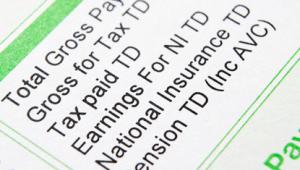23 January 2009
By Vivienne Russell
Councils face the most severe capping round yet as ministers confirmed next year's local government finance settlement but refused to specify a tax increase limit.
Some authorities were already taking evasive action and proposing council tax freezes for 2009/10 to help their residents weather the worst of the recession.
In Scotland, councils are likely to be asked to agree to a second year of zero increases.
In England, the second year of the government's three-year funding settlement gives councils a total of £73.1bn in formula and specific grants – a funding increase of 4.2%.
Local government minister John Healey said the increase was healthy. 'Councils are facing tough budget decisions like the rest of government but people rightly expect us all to tighten our belts,' he said.
But Healey again warned that he would have no compunction in using his capping powers should the scale of council tax increases warrant it.
'I expect next year's average council tax rise to be substantially below 5% – I will not hesitate to help people by capping any excessive increase if I have to,' he said.
The Department for Communities and Local Government is refusing to state at what level capping will be applied. This suggests that capping could be imposed on councils that stay insufficiently below 5%.
Some councils, including Conservative-controlled St Edmundsbury Borough Council in Suffolk and the Labour-controlled London Borough of Greenwich, are pre-empting capping and proposing council tax freezes.
John Griffiths, leader of St Edmundsbury, told Public Finance that his suggestion to freeze council tax next year had been approved unanimously by councillors of all parties.
'There's no question that times are very tough for people… We believe the simplest and most effective way to reach the maximum number of our residents is to ensure every household in the borough pays no more than it did last year,' he said.
Managing finances and assets carefully in easier times had put the council in a better position to help residents now, he said.
Chris Roberts, leader of Greenwich, said the council was midway through a four-year budget strategy that had generated sufficient savings to fund the council tax freeze. He said he was confident of the council approving the proposal at February's budget meeting.
Early indications of next year's average council tax rise were revealed in a Local Government Association survey of 50 councils, published on January 19. It predicted tax would rise by an average of 3.5% – which would be the lowest increase for over a decade.
LGA chair Margaret Eaton said: 'Councils understand that people are suffering and they're working flat out to keep council tax down, to keep local businesses afloat and help people deal with the impact of the recession.'
CIPFA chief executive Steve Freer said many councils were facing their most difficult budgets for years. 'The challenge for all councils will be to drive efficiency savings as hard as possible to bridge the budget gap and to minimise the far less palatable option of cuts in services,' he added.
PFjan2009



















